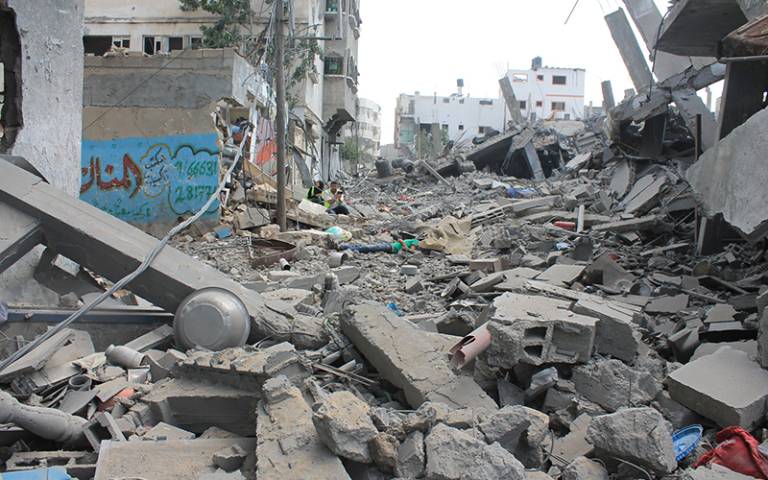Violence and Mental Health in Gaza: Reflections on Practice and Policy
30 May 2023, 5:00 pm–6:30 pm

This event is supported by UCL Global Engagement Grant as well as MENSAP (Middle East and North Africa Social Policy) Grant.
Event Information
Open to
- All
Availability
- Yes
Organiser
-
Haim Yacobi
Location
-
Room 403Senate House, Malet StreetLondonWC1E 7HU
In a place like the Gaza Strip, one would wonder what might be more psychologically impacting the population, the continuous deterioration in socioeconomic status or the feeling of insecurity and unsafety complicating exposure to traumatic events. The highly populated coastal strip with almost five thousand people per square kilometer has been under a blockade since 2007. The blockade impacted the already impoverished community with two-thirds of the population being refugees. This comes along decades of occupation since 1967 leading to high poverty and unemployment rates. The Palestinian Central Bureau of Statistics (PCBS) reported that the unemployment rate was 45% ( 73.9% among youth aged 19-29) in 2022. The poverty rate was estimated to be at 53% in 2017 (PCBS). The World Bank estimates that the May 2021 conflict has increased poverty to 59.3 per cent in 2021. And that it was further increased after 2022 escalation.
These high unemployment and poverty rates cause 80% of Gazans to rely on humanitarian assistance. Within the 15 years of blockade Gazans were exposed to 5 large-scale military operations that killed and injured thousands, displaced tens of thousands, led to the destruction of housing, and infrastructure, and traumatized tens of thousands of people.
The overall picture is of a sharp deterioration complicating a steady one and in between these scenarios Gazans try to build resilience and find hope. At the Gaza Community Mental Health Programme all efforts are focused on helping Gazans overcome the psychological impact of these scenarios, but we are challenged by a more severe and complex clinical picture: that is that our patients have an increase in relapse rate. There is an increased need to prescribe medications to patients in addition to offering psychotherapy. Stigma is another challenge that is continuously faced in practice. It delays seeking help and sometimes causes treatment refusal or non-compliance. The reality of Gaza hopefully serves as an example of how violations of human rights have a tremendous impact on the psychological well-being of so many human lives. What is our role as active citizens in such cases? And how can we as a community persuade the powers be to act in ways in which the right to have rights of Gazans are given the urgent attention that they need?
(Photo by Joe Catron)
 Close
Close

